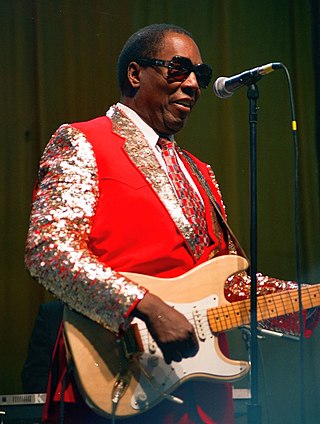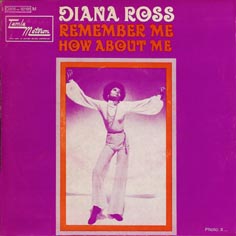Related Research Articles
Tina Charles is an English singer who achieved success as a disco artist in the mid to late 1970s. Her most successful single was the UK no. 1 hit "I Love to Love " in 1976.

Clarence George Carter is an American singer, songwriter, musician and record producer. His most successful songs include "Slip Away", "Back Door Santa", "Patches" (1970) and "Strokin'" (1986).

The Spinners are an American rhythm and blues vocal group that formed in Ferndale, Michigan in 1954. They enjoyed a string of hit singles and albums during the 1960s and 1970s, particularly with producer Thom Bell. The group continues to tour, without any original members, after Henry Fambrough retired in 2023.

Gene Chandler is an American singer, songwriter, music producer, and record-label executive. Chandler is nicknamed "the Duke of Earl" or, simply, "the Duke." He is best known for his most successful songs, "Duke of Earl" and "Groovy Situation", and his association with the Dukays, the Impressions, and Curtis Mayfield.
Bonny "Mack" Rice, sometimes credited as Sir Mack Rice, was an American songwriter and singer. His best-known composition and biggest hit as a solo performer was "Mustang Sally". He also wrote "Respect Yourself" with Luther Ingram.

"Ain't Nothing Like the Real Thing" is a 1968 single released by American R&B/soul duo Marvin Gaye and Tammi Terrell, on the Tamla label in 1968. The B-side of the single is "Little Ole Boy, Little Ole Girl" from the duo's United LP. The first release off the duo's second album: You're All I Need, the song—written and produced by regular Gaye/Terrell collaborators Ashford & Simpson—became a hit within weeks of release eventually peaking at number eight on the US Billboard Hot 100 and number one on the Hot Soul Singles chart, the first of the duo's two number-one R&B hits. In the UK "Ain't Nothing Like the Real Thing" reached number 34.

"Shop Around" is a song originally recorded by the Miracles on Motown Records' Tamla subsidiary label. It was written by Miracles lead singer Smokey Robinson and Motown Records founder Berry Gordy. It became a smash hit in 1960 when originally recorded by the Miracles, reaching number one on the Billboard R&B chart, number one on the Cashbox Top 100 Pop Chart, and number two on the Billboard Hot 100 chart. It was the Miracles' first million-selling hit record, and the first-million-selling hit for the Motown Record Corporation.
"Try It Baby" is a slow blues ballad recorded by American soul singer Marvin Gaye, released on the Tamla label in 1964. The ballad was written and produced by Gaye's brother-in-law, Motown chairman Berry Gordy.
The Soul Children was an American vocal group who recorded soul music for Stax Records in the late 1960s and early 1970s. They had three top 10 hits on the U.S. Billboard R&B chart – "The Sweeter He Is" (1969), "Hearsay" (1972), and "I'll Be the Other Woman" (1973) – all of which crossed over to the Billboard Hot 100.
James Eddie Lewis was an American soul singer, songwriter, arranger and producer. He was a member of the Drifters in the 1960s, worked as a songwriter and producer with Ray Charles, and wrote songs for Z. Z. Hill among many others.

"Working My Way Back to You" is a song made popular by the Four Seasons in 1966 and the Spinners in 1980.

Timothy Earle Thomas was an American R&B singer, keyboardist, songwriter, and record producer, best known for the hit song, "Why Can't We Live Together".
Brooklyn Dreams were an American singing group of the late 1970s, mixing R&B harmonies with contemporary dance/disco music and best known for a number of collaborations with singer Donna Summer. The band consisted of Joe "Bean" Esposito, Eddie Hokenson and Bruce Sudano. Esposito provided lead vocals for the band and played guitar, while Sudano played keyboards and Hokenson played drums and occasionally sang lead vocals.

"(Your Love Keeps Lifting Me) Higher and Higher" is an R&B song written by Gary Jackson, Raynard Miner, and Carl Smith. It was recorded by Jackie Wilson for his album Higher and Higher (1967), produced by Carl Davis, and became a Top 10 pop and number one R&B hit.

"Remember Me" is a 1970 single recorded and released by singer Diana Ross on the Motown label and was included on her 1971 album Surrender. The song was released as the album's first single on December 8, 1970 by the label. It was written and produced by Ashford & Simpson. In the US, the song was Ross' third top forty pop hit within a year, peaking at number 16 on the Hot 100 chart and number 10 on the soul chart. It was also Diana Ross' third entry on the Easy Listening chart, where it went to number 20. It gave Diana her third gold single in a year and her third top 10 charting single in Cash Box, peaking at number eight. Overseas, "Remember Me" reached the top ten in the UK, where it reached number seven. It was the lead single from Ross' 1971 album, Surrender.

"I'll Be Around" is a song recorded by the American R&B vocal group The Spinners. It was co-written by Thom Bell and Phil Hurtt and produced by Bell.
Ronald Dyson was an American soul and R&B singer and actor. He had a lead role in the Broadway production of Hair and scored a top ten single in 1970 with "(If You Let Me Make Love to You Then) Why Can't I Touch You?"
John Colbert, known professionally as J. Blackfoot, was an American soul singer. A member of The Soul Children in the late 1960s and 1970s, he subsequently had a moderately successful solo career. His biggest hit was "Taxi", which reached the charts in both the US and UK in 1984.
One Way was an American R&B and funk band that was popular in the late 1970s, and throughout most of the 1980s, led by singer Al Hudson. The group's most successful record was "Cutie Pie", which reached number 4 on the Billboard Soul Singles chart and number 61 on the pop chart in 1982.
Leroy Phillip Mitchell, often credited as Prince Phillip Mitchell, is an American R&B singer, songwriter, and record producer. He wrote "Starting All Over Again" for Mel and Tim, and "It Hurts So Good" and "Leftovers", which were both hits for Millie Jackson, as well as having some success in the 1970s and 1980s as a solo singer.
References
- 1 2 John Edwards, Soulwalking.co.uk. Retrieved 14 October 2016
- 1 2 Biography by Ron Wynn, Allmusic.com. Retrieved 14 October 2016
- ↑ John Edwards, SoulCellar.co.uk. Retrieved 14 October 2016
- ↑ Whitburn, Joel (1996). Top R&B/Hip-Hop Singles: 1942–1995. Record Research. p. 132.
- ↑ Whitburn, Joel (2003). Top Pop Singles 1955–2002 (1st ed.). Menomonee Falls, Wisconsin: Record Research Inc. p. 666. ISBN 0-89820-155-1.
- ↑ Betts, Graham (2004). Complete UK Hit Singles 1952–2004 (1st ed.). London: Collins. p. 214. ISBN 0-00-717931-6.
- ↑ "The Spinners", Indianapolis Recorder, August 2, 2012. Retrieved 14 October 2016